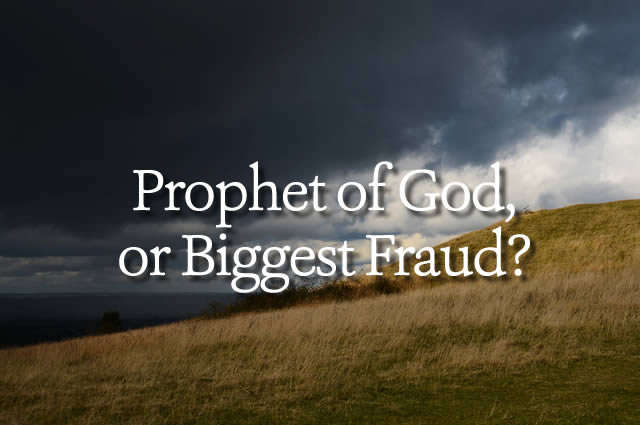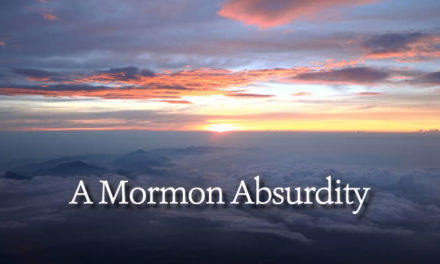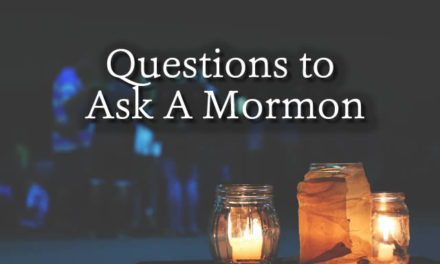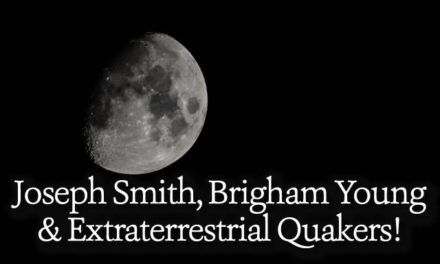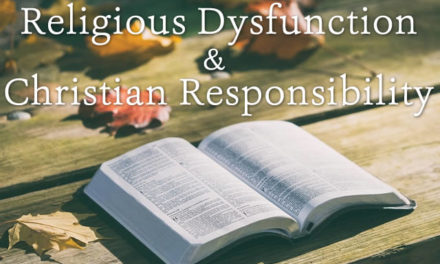May 2002
Joseph Fielding Smith, tenth President of the Church of Jesus Christ of Latter-day Saints, said, “Mormonism, as it is called, must stand or fall on the story of Joseph Smith. He was either a prophet of God, divinely called, properly appointed and commissioned, or he was one of the biggest frauds this world has ever seen. There is no middle ground” (Doctrines of Salvation, Vol. 1, page 188).
Where do we begin in testing the “story of Joseph Smith,” or how do we “try the spirits” (I John 4:1) behind “Mormonism, as it is called?”
The quickest test is that of a prophet. We are given the test criteria by Moses, inspired by the Holy Spirit, in Deuteronomy 18:20-22.
So, the test involves answering two simple questions. First, did Joseph Smith claim to speak in God’s name? Second, did the foretold event come to pass?
Did Joseph Smith claim to speak in God’s name? Certainly. On October 18, 1843, in History of the Church, Vol. 6, page 58, Joseph Smith said, “I prophesy, in the name of the Lord God of Israel, anguish and wrath and tribulation and the withdrawing of the Sprit of God from the earth await this generation, until they are visited with utter desolation.” He is called by the LDS church a “Prophet, Seer, and Revelator” as is any President of their church.
When Mormons are confronted by Smith’s false prophecies they will frequently quote Smith’s statement that, “a prophet was a prophet only when he was acting as such” (History of the Church, Vol. 5, page 265). They will then try to claim that Smith was speaking his own opinion and not that of God. This is a difficult claim in light of Smith’s frequent use of the phrase “I prophesy in the name of the Lord….”
In 1980, then President (Prophet, Seer and Revelator) Ezra Taft Benson gave a speech wherein he listed Fourteen Fundamentals in Following the Prophets. Here are a few of them;
“First: The Prophet is the Only Man Who Speaks For The Lord in Everything.”
“Sixth: The Prophet Does Not Have to Say ‘Thus Saith the Lord’ to Give Us Scripture.”
“Fourteenth: The Prophet and the Presidency – The Living Prophet and The First Presidency – Follow Them And Be Blessed – Reject Them and Suffer” (Where Does It Say That, page 12-4).
Brigham Young endorsed Joseph Smith’s Prophet status in words blasphemously reminiscent, and contradictory to, the Apostle John’s words I John 4:1-3. He said in Journal of Discourses, Vol. 9, page 312, “All who confess that Joseph Smith is sent of God in the latter days, to lay the foundation of his everlasting kingdom no more to be thrown down, and will continue to keep his commandments, are born of God. All those who believe in their hearts and confess with their mouths that Joseph Smith is a true Prophet… are in possession of the Holy Spirit of God and are entitled to a fullness.”
The second test criteria for a claimant to the prophet’s mantle is that his prophecies must come true.
It must be kept in mind that a prophecy that looks far into the future cannot be tested by this method immediately. For instance, the prophecy given by Micah of Christ’s birth in Bethlehem was given hundreds of years before it could be proven true, or false. Those prophecies that can be tested in the short term will give credibility to the longer term prophecies, if they come true.
Most false prophets in religious history just can’t keep their mouths shut and will abundantly condemn themselves in the short term. They are like the Wizard of Oz, full of thunderings and lightnings, to impress their listeners. However, they don’t want you to look behind the veil, ie., test their claims.
Let’s peek behind the veil to see if Joseph Smith spoke presumptuously in the name of God.
From Mormon scripture, Doctrine and Covenants, we find the following prophecies.
Section 84:1-5, 31
“A REVELATION of Jesus Christ unto his servant Joseph Smith, Jun.,… Yea, the word of the Lord concerning his church,… for the gathering of his saints to stand upon Mount Zion, which shall be the city of New Jerusalem. Which city shall be built, beginning at the temple lot, which is appointed by the finger of the Lord, in the western boundaries of the State of Missouri, and dedicated by the hand of Joseph Smith, Jun.,… which temple shall be reared in this generation. For verily this generation shall not all pass away until an house shall be built unto the Lord…”
The prophecy was given, according to D&C, September 22, 23, 1832 in Kirtland, Ohio, therefore, that “generation” has long since passed away without a temple being built.
The main reason for a temple not being built is that the “temple lot” is owned by a splinter group called The Church of Christ, Temple Lot, and they will not sell. Even if the LDS church could purchase the property and build a temple it would not fulfill the prophecy because of the “this generation” phrase.
Section 87:1-6: “Verily, thus saith the Lord concerning the wars that will shortly come to pass, beginning at the rebellion of South Carolina,… war will be poured out upon all nations, beginning at this place.”
In 1832 South Carolina was threatening secession over tariffs that injured their economy and President Jackson was threatening to send in Federal troops. The conflict was resolved in the short term without war. However, discussion of the possibility of war was widely circulated in the news at the end of 1832. Joseph Smith simply turned news reports into a prophecy, a very inaccurate prophecy.
Though South Carolina and the southern States did secede in 1861 and the fighting did begin in South Carolina, war was not poured out upon all nations. The Confederacy sought help from other nations but did not get it. The prophecy goes on to say that a result of this war will be that plague, earthquake, and famine will be poured upon the earth leading to “a full end of all nations.” Nothing of the sort happened.
If someone was going to predict civil war in that era the choice of South Carolina would have been the easy part. One southern politician at that time said of the rebellious spirit of the State, “Too small for a Republic. Too large for an insane asylum.”
We only needed one false prophecy to conclude that Joseph Smith was a false prophet. In the Old Testament a prophet’s life was on the line if he prophesied falsely. He could be ‘rocked to sleep’, stoned to death, for the offense. Today we must simply not respect the words of someone who has demonstrated that he speaks against the truth of God.
When sharing examples with the Mormon true believer many clear examples may be necessary. Joseph has left us with an ample supply, these were but two.
By David Henke

